Stomach-churning moment jigger flea tunnels into Wilderness cameraman’s ankle in The Congo to lay its eggs – after Simon Reeve admitted the new series is the toughest he’s filmed
Explorer Simon Reeve has labeled his trek across Congo for his new show Wilderness as his toughest experience yet, with viewers agreeing that the presenter and his crew are ‘made of tough stuff’ after a horrific start to the series.
In the first episode, which aired on BBC 2 last night, Simon, 51, treks through the Congo Basin, Africa’s largest forest covering 2.2 million square kilometers, facing challenging weather conditions, biting insects and a dwindling water supply.
But perhaps the most stomach-churning scene occurs when the cinematographer, Jonathan Young, discovers that a jigger flea has tunneled into his ankle to lay its eggs.
With a toe-curling extraction, the doctor removes the flea and egg sac with a scalpel – in the middle of the night.
Wilderness with Simon Reeve follows the explorer as he travels through the Pacific Ocean’s Coral Triangle, Africa’s Congo Rainforest and Kalahari Desert, and Patagonia in South America.
Simon Reeve returns with a riveting four-part adventure series, which premiered yesterday on BBC2 – and features a travel program full of extreme challenges
Simon, a best-selling author and presenter, meets people who live in these natural environments to learn how we can preserve these areas for future generations.
He is accompanied by Congolese wildlife activist and conservationist Adams Cassinga, as well as his crew.
The explorer says the journey through Congo is his toughest experience yet.
However, his insect bites seem mild compared to the ordeal of his cameraman, Jonathan, who discovers that a jigger flea has tunneled into his ankle to lay its eggs.






Viewers praised Simon and his team for their toughness, saying they wouldn’t be able to cope with the conditions or the creepy crawlies
The former Marine’s ankle, which has turned dark purple, has to be cut open with a scalpel by the team medic to remove the flea and its eggs – in the middle of the night.
Simon praises Jonathan’s “extraordinary heroism” as he watches with torches providing just enough light for the medic to perform the procedure.
Elsewhere, the group faces challenging conditions as they slowly make progress through the world’s largest peat bog, estimated to be the size of England. Sometimes even Adams looks nervous.
Three days away from the nearest hotel or hospital, an exhausted Simon regularly shouts “Damn!” while wading through thigh-high, deep mud for extended periods of time. He estimates that the group is moving at a mile per hour because each step is so demanding.
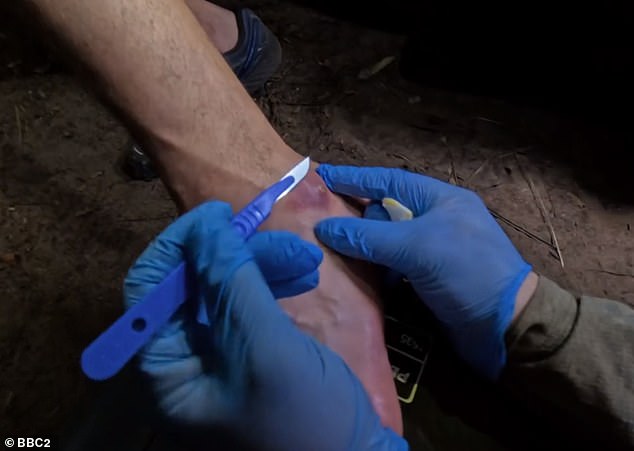
The medic had to use a scalpel to remove a jigger flea and its eggs from cameraman Jonathan Young’s ankle
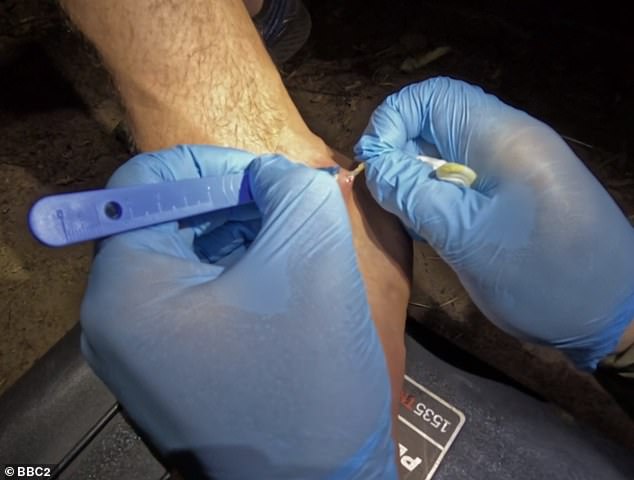
The procedure was filmed, during which stringy pus was pulled out from under the skin
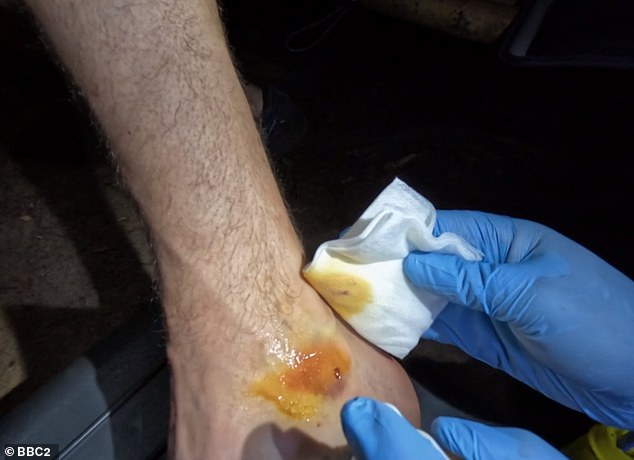
The medic made sure to disinfect Jonathan’s skin after the removal was completed
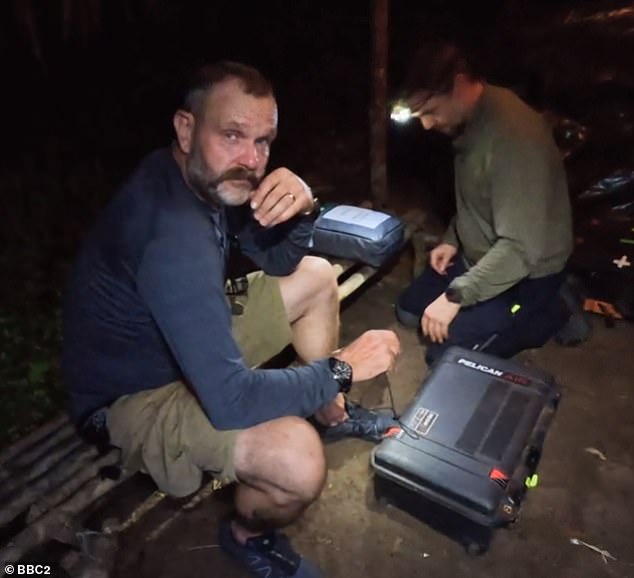
Jonathan, a former Marine, initially thought he had a bad blister on his ankle, but the reality was more gruesome
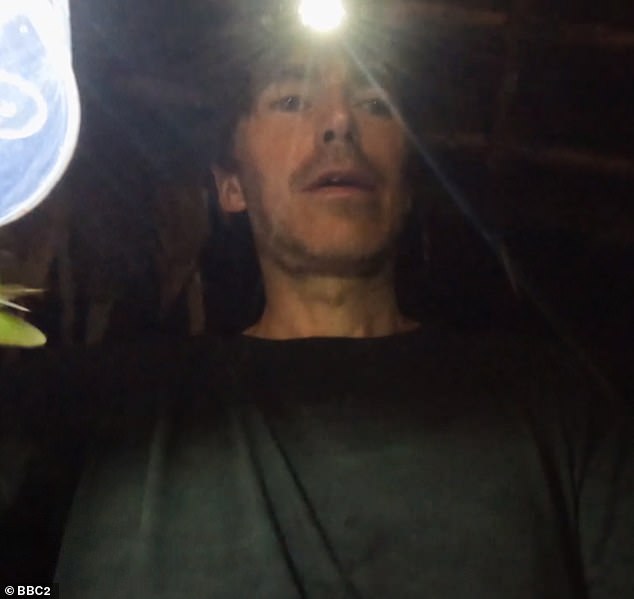
Simon watched with torches that gave the medic just enough light to perform the procedure
Eventually they discover the nomadic Baka people, who live in the forest. The clan welcomes the crew and the women build a hut for Simon within minutes.
Adams explains that these people live in harmony with the forest – unlike people in the modern world, who are more materialistic.
Later the explorers arrive in Salonga, in search of bonobos, the great apes. The journey to find them is brutal, with Simon and his team hacking through dense undergrowth in sweltering heat and a fog of biting insects.
Ultimately, the team struck gold and even discovered baby bonobos who seem content with their laid-back lifestyle. Simon comments that you look like you’re basking in the sun in Benidorm.
According to the World Wildlife Fund, the African forest, covering an area of 2.3 million square kilometers, is one of the most important wild areas on earth.
Many scientists believe that Congo is now of greater global importance than the deforested Amazon because the country has enough trees to absorb more carbon than it emits.
